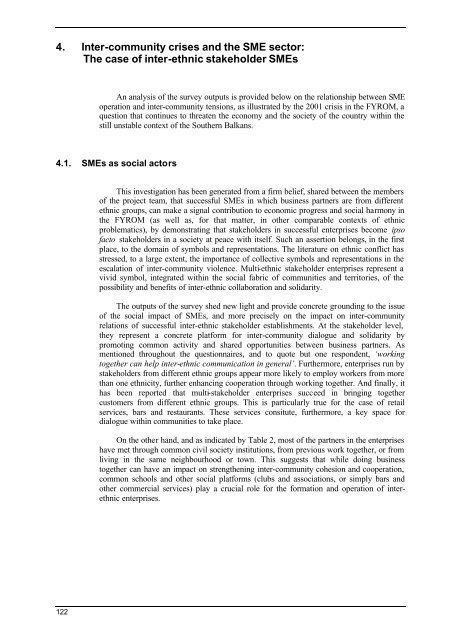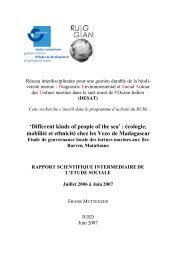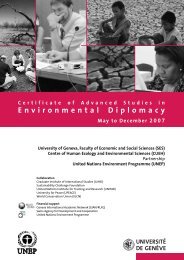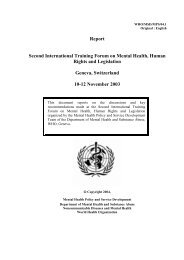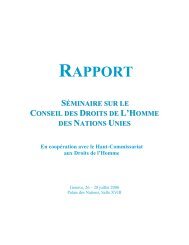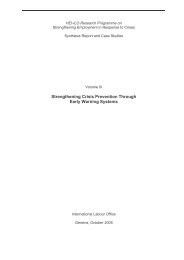Volume 1 Cedric - revised luca Final - RUIG-GIAN
Volume 1 Cedric - revised luca Final - RUIG-GIAN
Volume 1 Cedric - revised luca Final - RUIG-GIAN
Create successful ePaper yourself
Turn your PDF publications into a flip-book with our unique Google optimized e-Paper software.
4. Inter-community crises and the SME sector:The case of inter-ethnic stakeholder SMEsAn analysis of the survey outputs is provided below on the relationship between SMEoperation and inter-community tensions, as illustrated by the 2001 crisis in the FYROM, aquestion that continues to threaten the economy and the society of the country within thestill unstable context of the Southern Balkans.4.1. SMEs as social actorsThis investigation has been generated from a firm belief, shared between the membersof the project team, that successful SMEs in which business partners are from differentethnic groups, can make a signal contribution to economic progress and social harmony inthe FYROM (as well as, for that matter, in other comparable contexts of ethnicproblematics), by demonstrating that stakeholders in successful enterprises become ipsofacto stakeholders in a society at peace with itself. Such an assertion belongs, in the firstplace, to the domain of symbols and representations. The literature on ethnic conflict hasstressed, to a large extent, the importance of collective symbols and representations in theescalation of inter-community violence. Multi-ethnic stakeholder enterprises represent avivid symbol, integrated within the social fabric of communities and territories, of thepossibility and benefits of inter-ethnic collaboration and solidarity.The outputs of the survey shed new light and provide concrete grounding to the issueof the social impact of SMEs, and more precisely on the impact on inter-communityrelations of successful inter-ethnic stakeholder establishments. At the stakeholder level,they represent a concrete platform for inter-community dialogue and solidarity bypromoting common activity and shared opportunities between business partners. Asmentioned throughout the questionnaires, and to quote but one respondent, ‘workingtogether can help inter-ethnic communication in general’. Furthermore, enterprises run bystakeholders from different ethnic groups appear more likely to employ workers from morethan one ethnicity, further enhancing cooperation through working together. And finally, ithas been reported that multi-stakeholder enterprises succeed in bringing togethercustomers from different ethnic groups. This is particularly true for the case of retailservices, bars and restaurants. These services consitute, furthermore, a key space fordialogue within communities to take place.On the other hand, and as indicated by Table 2, most of the partners in the enterpriseshave met through common civil society institutions, from previous work together, or fromliving in the same neighbourhood or town. This suggests that while doing businesstogether can have an impact on strengthening inter-community cohesion and cooperation,common schools and other social platforms (clubs and associations, or simply bars andother commercial services) play a crucial role for the formation and operation of interethnicenterprises.122


